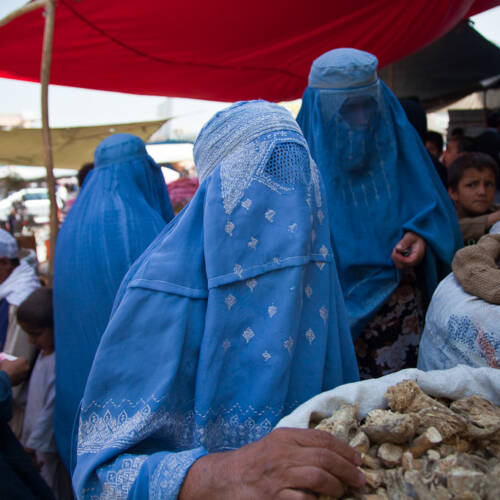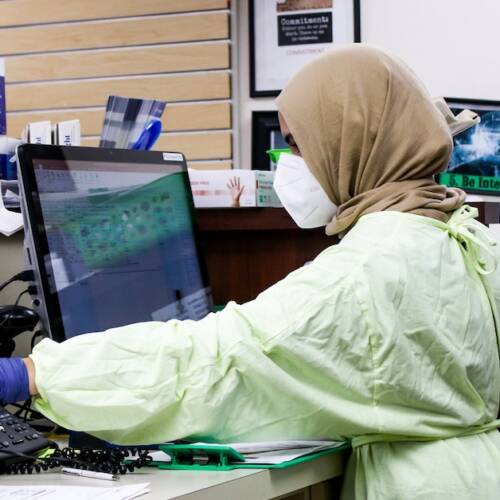
Coronavirus Hits British Shores: Here’s Everything You Need to Know
01 Feb 2020In early January, the World Health Organization (WHO) identified a new type of coronavirus in Wuhan, the most populous city in Central China. Just weeks later this location, home to over 11 million people, is now under a state of quarantine by the Chinese government. With an extra 50 million people affected by China’s travel restrictions and infection figures skyrocketing daily. Just yesterday, WHO declared this a global health emergency.
A coronavirus isn’t something completely alien to the scientific community. It was first discovered by scientists in the 1960’s, with the exact origin of the virus unknown to this day. As a zoonotic virus, it can be transmitted between humans and animals. The common symptoms can be anything ranging from a wheezing cough to full-scale pneumonia which can lead to death. The spreading of a coronavirus is similar to how most cold-causing viruses are spread: being close to or touching someone showing the symptoms, coughing, sneezing etc.
What makes this a particularly difficult virus to contain however, is that, unlike Ebola and Swine Flu, it becomes transmittable before any symptoms can be detected. Hence the urgency and quick mobilization of the Chinese government in fighting its expansion.
The migration of potential carriers of the disease has alerted governments across the world to take a thorough look at the various immigration and emigration policies in attempt to prevent a global pandemic. China may not be the last country to enforce travel bans.
The extent to which Xi Jinping’s government is competent in dealing with the issue might depend on whether his government is open and transparent enough with the international community with regards to the magnitude of the situation. A unilateral effort surely won’t be enough. Still, the Chinese government have made efforts to fight the disease by setting an ambitious target of building a 1,000 bed, 269,000 square foot hospital in 10 days. It is no lie that the Chinese state is efficient and powerful, with this not being the first time they’ve had to erect medical facilities in a short period of time in the face of a deadly virus. The SARS outbreak of 2003 is an example of this. However, whether this plan will help in containing the spread of the virus is up for debate.
And although China is a competent state with a rapid mobilizing ability, people are still questioning as to whether their quarantine policy will work. Sure, travel restrictions can help in the delaying of the disease, but with the interconnected nature of modern travel and trade, it will prove an enduring task in stopping the number of people getting infected. It really is a question of whether health officials are a few steps behind the epidemic or are on top of the problem with the correct intelligence.
The number of countries that have been affected by the coronavirus seems to be increasing daily, with most countries near China reporting cases and European countries enacting their own prevention policies to contain its spread. Infections have been confirmed in France, Nepal, Japan, Cambodia, South Korea, Singapore, Vietnam, Taiwan, Canada and Sri Lanka. Nearly all cases of the virus can be traced back to Chinese tourists.
Currently in the U.K, there are over 400,000 Chinese immigrants living across the country and the student population has also increased by 34% in the last 5 years to reach figures beyond 100,000. With this sizeable presence in the country, the UK government is watching the development of the crisis closely. Boris Johnson has already made plans for the evacuation of over 200 British nationals living in the Wuhan area and to be put in quarantine for 2 weeks.
Yesterday, it was announced by the chief medical officer for England that 2 Chinese nationals from the same family were carrying the virus whilst staying in a hotel in York. They were airlifted from the location within hours of being tested positive and the hotel since then has been disinfected and began operating as normal.
So the question is now, how long will it take for the international community to take matters into its own hands?
The World Health Organization has now declared this virus to be a global health emergency. This is due to the rise in numbers of people infected. Cases are starting to become more common in countries other than China. Still, it was recently reported that WHO officials have been allowed into mainland China to fully assess the situation and contribute to efforts in getting rid of the virus. And so far, the organization have been pleased with China’s quick response to the outbreak and have urged other countries to make their own appropriate measures.
Aid and scientific organizations across the world will have an important role to play, now and in the future, in avoiding a truly critical pandemic. From ensuring the public are educated and aware of the symptoms, to providing resources and human capital in mitigating the spread. Direct Relief have already sent an emergency shipment of over 200,000 surgical face masks to China whilst scientists in Australia have already made breakthroughs in making a copy of the coronavirus in the hope that this will have positive implications for future diagnoses.
Speaking of future diagnoses, it is also important that every individual is aware of the common signs of which signal that they, or someone else, could be carrying the virus. People who have already been infected have experienced fevers, coughs, shortness of breath and muscle ache. Awareness of the symptoms is one thing, but it also imperative that individuals stay hygienic and clean, keeping one eye on the availability of various resources. Quite so, it has recently been reported that surgical face masks are selling out across the U.S and online in response to the outbreak. Although some medical professionals are skeptical as to the effectiveness of the products.
The long-term effects and implications of the coronavirus will be complex and difficult to predict. The tourism industry in East-Asia will be one of the sectors to be affected the most, with other economic ramifications for the region being a certainty. The Japanese government will especially be watchful over any new developments as they prepare for the Tokyo Olympics this summer.
As the media fuels more panic and uncertainty into the minds of the public, it might be significant to look at how the environment of east Asians living in the West shifts to one of hostility in the face of growing negative stereotypes.
Only time will tell as to whether this new coronavirus will trigger a truly global crisis. The World Health Organization’s recent announcement might prove to be a turning point in the amount of interstate-level urgency in fighting it’s spread. Governments and international organizations are watching with nervous eyes as the number of people infected seems to be increasing every time they refresh their web browsers.















